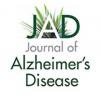18 August 2020
New Links Found Between Diabetes Blood Markers and Alzheimer’s Disease Pathology
A new study published in JAD provides insight into the association of blood markers of diabetes with brain beta-amyloid accumulation among older people at risk of dementia. The results suggest a link between Alzheimer’s pathology, lower levels of insulin and lower insulin resistance.
5 August 2020
Body Weight Has Surprising, Alarming Impact on Brain Function
As a person’s weight goes up, all regions of the brain go down in activity and blood flow, according to a new brain imaging study in JAD. One of the largest studies linking obesity with brain dysfunction, scientists analyzed over 35,000 functional neuroimaging scans using single-photon emission computerized tomography from more than 17,000 individuals to measure blood flow and brain activity.
4 August 2020
2020 JAD Editorial Board Update
To keep our JAD editors, authors, and readers informed of JAD's progress and development, the journal hereby shares the 2020 editorial update.
31 July 2020
Memory Loss Reversed or Abated in those with Cognitive Decline
Affirmativ Health sought to determine whether a comprehensive and personalized program, designed to mitigate risk factors of Alzheimer’s disease could improve cognitive and metabolic function in individuals experiencing cognitive decline. Findings published in the Journal of Alzheimer’s Disease Reports provided evidence that this approach can improve risk factor scores and stabilize cognitive function.
8 July 2020
Christin Nance and Sarah Banks Receive 2020 Alzheimer Award
JAD is pleased to announce that the joint recipients of the 2020 Alzheimer Award are Christin Nance, BA, and Sarah Banks, PhD. This year’s award-winning article addresses one of the primary challenges in managing AD: the variable rate of cognitive decline among patients. The 2020 winning paper is “The Pathology of Rapid Cognitive Decline in Clinically Diagnosed Alzheimer’s Disease."
12 June 2020
Three Stages to COVID-19 Brain Damage Identified by Top Neurologists in Journal of Alzheimer Disease Paper
The Journal of Alzheimer’s Disease has just published a paper with a comprehensive review of the COVID-19’s effect on the nervous system which classifies brain damage caused by COVID-19 into three stages. One of the authors, nationally-recognized neurologist Dr. Majid Fotuhi, MD, PhD, who is the medical director of NeuroGrow Brain Fitness Center in Northern Virginia and an affiliate staff at Johns Hopkins Medicine, encourages the adoption of this three-stage classification, calls for more research on COVID's long-term effects on the brain, and stresses the need for patients to receive a brain MRI before leaving the hospital.
27 May 2020
Study Results Offer New Hope for Treatment of Patients with Dementia
TauRx reported that the drug it is developing for treatment of Alzheimer’s disease (hydromethylthionine) also has significant pharmacological activity in behavioural variant Fronto-Temporal Dementia (bvFTD). The study reports a pharmacokinetic analysis of the relationship between treatment dose, blood levels and pharmacological activity of the drug hydromethylthionine on the brain in 176 patients with bvFTD. The results showed that, even at the lowest dose of hydromethylthionine tested (8 mg/day), the drug (taken as a tablet) produced statistically significant concentration-dependent effects on clinical decline and brain atrophy with results similar to those reported recently in Alzheimer’s disease.
26 May 2020
Uncovering Alzheimer’s Disease
Characterized by a buildup of amyloid plaques in the brain, Alzheimer’s is an irreversible disease that leads to memory loss and a decrease in cognitive function. More than 5 million Americans suffer with the brain condition, which is the sixth leading cause of death in the United States. While the causes of Alzheimer’s are not fully understood, scientists believe genetic, lifestyle and environmental factors are involved in the disease’s development.
20 May 2020
Exercise Improves Memory, Boosts Blood Flow to Brain
Scientists have collected plenty of evidence linking exercise to brain health, with some research suggesting fitness may even improve memory. But what happens during exercise to trigger these benefits? New UT Southwestern research that mapped brain changes after one year of aerobic workouts has uncovered a potentially critical process: Exercise boosts blood flow into two key regions of the brain associated with memory. Notably, the study showed this blood flow can help even older people with memory issues improve cognition, a finding that scientists say could guide future Alzheimer’s disease research.
6 May 2020
Cortexyme Publishes Data on P. gingivalis' Ability to Infect Neurons, drive Alzheimer’s-Like Pathology
Cortexyme, Inc., a clinical stage biopharmaceutical company pioneering a novel, disease-modifying therapeutic approach to treat what it believes to be a key underlying cause of Alzheimer’s disease and other degenerative diseases, today announced the publication of research further documenting the ability of the pathogen Porphyromonas gingivalis to invade neurons and trigger Alzheimer’s-like neuropathology.
















